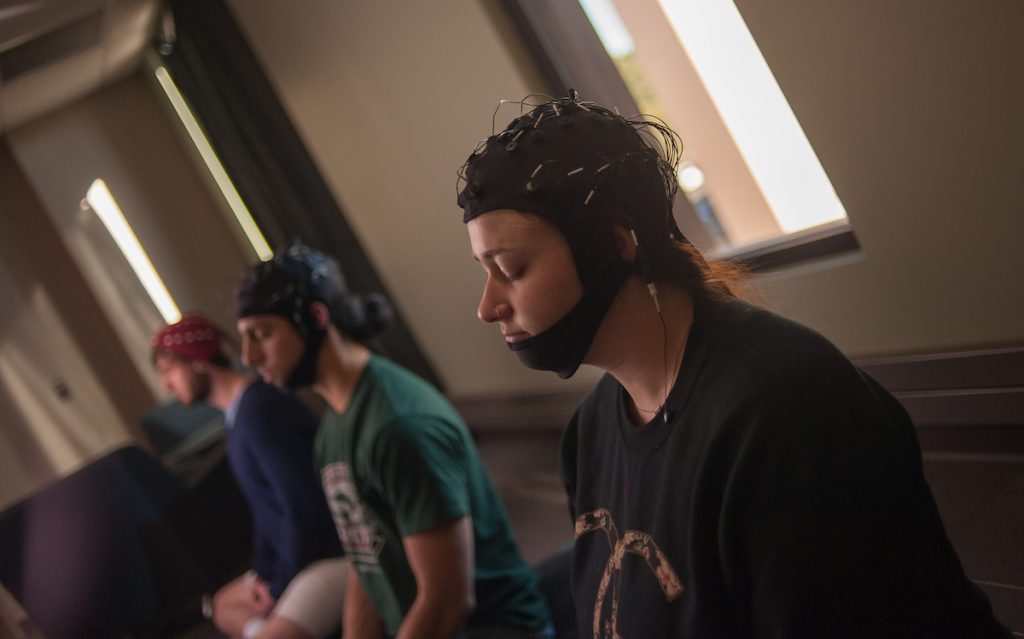By Kerry Bennett
Office of the Vice President for Research
This summer, associate professor Chad Woodruff and his colleagues concluded another successful Neuroscience of Compassion Research Experience for Undergraduates (REU) program. Sponsored by Northern Arizona University’s College of Social and Behavioral Sciences and Department of Psychological Sciences, the program trains eight students each summer how to conduct research into the cortical, physiological and psychosocial underpinnings of compassionate behavior.
The elite REU program—offered at only a few institutions across the country—is funded by the National Science Foundation (NSF) to offer research opportunities for students who don’t have access to them at their home institutions.
Although the program is open to all qualified undergraduates, the NSF program focuses on recruiting first-generation college students and members of groups that are underrepresented in the sciences, such as Native American, Hispanic, African American, Native Alaskan, Native Hawaiian/Pacific Islander and students with disabilities.
“This program attracts top-notch students,” said Woodruff, noting most of the students are psychology majors. “Only the best of the best apply.”
NAU’s intensive eight-week program, which is now in its 10th consecutive year, offers undergraduate students the opportunity to collaborate with the department’s doctoral faculty in all stages of psychological research. Students learn how to generate research hypotheses; create an appropriate research methodology; configure research procedures and protocols; and collect, analyze and interpret data using a variety of tools, including electroencephalography (EEG) equipment. The ultimate goal is to enable students to complete their own research projects.
The students, who work a minimum of 40 hours per week, make professional presentations of their research outcomes at local and national conferences. Some even have the opportunity to participate in preparing and submitting manuscripts for publication. The summer following their internship, students in the program are invited to the American Psychological Association to present their research in a symposium titled “The Neuroscience of Empathy and Compassion.”
Many students participating in the research program find it advances their careers, especially when they co-author papers on their work. More than half the interns enroll in related graduate programs and go on to pursue research careers.
This was Woodruff’s first year leading the program, and he credited professor Larry Stevens with establishing the program on a solid foundation. The four faculty members who participated by mentoring two interns each are conducting research on various aspects of compassion, such as friendship, cultural differences in compassion and the role of self-concept in compassion.
For example, interns working with associate professor Meliksah Demir studied the quality of friendship and how compassionate attitudes contribute to that.
The students in assistant professor Rob Goodman’s lab examined the neurological, behavioral and psychosocial outcomes of mindfulness with senior citizens and pain, studying whether practicing mindfulness can lead to improved quality of life.
Senior lecturers Dana Donohue and Dan Weidler conducted research with their interns on how self-concept relates to compassionate behavior and how this relationship is influenced by cultural differences in, for example, closeness to family, individualism and collectivism.
The current REU grant is on a three-year cycle with two summers remaining, at which time Woodruff will submit a renewal request for the next three-year cycle.



